Figures of History: Louise Meriweather
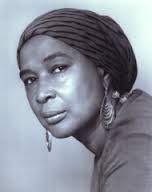 Since the beginning of her career, Louise Meriwether demonstrated that writers have a responsibility to something outside of themselves and their writing. Meriwether made it her personal mission to write about the Black experience both as she saw it growing up and also as a way to remind American people of the impact Black people have had on the history of this country. As she celebrates her 98th birthday, HBW would like to spotlight Louise Meriwether and her contributions both to Black writing and to the struggle for change.
Since the beginning of her career, Louise Meriwether demonstrated that writers have a responsibility to something outside of themselves and their writing. Meriwether made it her personal mission to write about the Black experience both as she saw it growing up and also as a way to remind American people of the impact Black people have had on the history of this country. As she celebrates her 98th birthday, HBW would like to spotlight Louise Meriwether and her contributions both to Black writing and to the struggle for change.
Meriwether is quoted saying “To be denied the knowledge of the accomplishments of your race is to instill in a people a lack of self-worth and a sense of shame and guilt. We have to understand that guilt is self-inflicted. Since we inflicted it upon ourselves, we can remove it. We can stand the truth. It is the half-truths, the lies, distortions, stereotypes, and caricatures which bring us pain, but we do not have to accept them as our reality. And so, I began to write, to dig out the truth about my people and expose that truth to the light” and write she did.
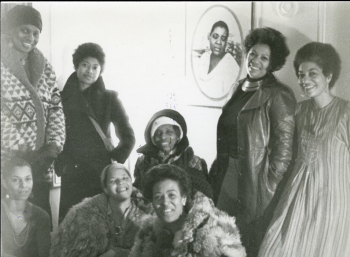
After the success of her first novel, Daddy was a Number Runner, Meriwether turned her focus to rectifying the omission of Black contributions in American history. In an essay titled, “Remembrances from the Civil War,” Meriwether recalls her childhood growing up in New York as the only Black girl in her class. Meriwether recalls feelings of shame and guilt around her Blackness coming as a result in part to her being the only Black person (let alone student) in the classrooms she attended. This issue of being the only Black person in the room followed her to college at NYU. There, she recalls a time when one of her professors misrepresented enslaved people as docile and lucky to be civilized in the U.S. Meriwether remembers that this misrepresentation of enslaved people left her feeling embarrassed. Because of the stories her father told her about the people in her family who escaped slavery, she knew there was little truth to this characterization. Meriwether attributes these experiences to her desire to write about Black Americans and their impact on American history.
Meriwether wrote “After publication of my first novel…I turned my attention to black history for the kindergarten set, recognizing that the deliberate omission of Blacks from American history has been damaging to the children of both races. It reinforces in one a feeling of inferiority and in the other the myth of superiority”.
Because of her experiences and her personal convictions, Meriwether’s first audience was young readers, for whom she published a series of books spotlighting important Black figures in American history. One of these children’s books, The Freedom Ship of Robert Smalls, eventually culminated into the novel Fragments of the Ark, a story about Peter Mango, an enslaved man who leads a group of enslaved people and commandeers to a Confederate boat to escape. Meriwether’s writing career spans almost 5 decades. In addition to her novels and children’s literature, she has written various short stories and poems and has accomplished many firsts, including writing for Essence’s first issue in 1970 and becoming the first Black story editor in Hollywood.
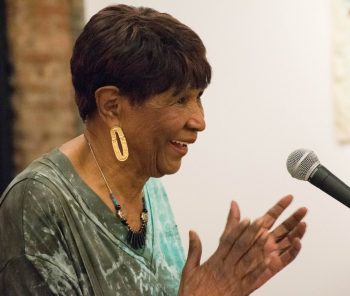
Meriwether’s writing is the product of her continued activism. As a self-proclaimed peacenik, over the years Meriwether has worked with other prominent artists and writers to form groups that not only acted as community for Black artists at the time, but also as an epicenter for her activism. In 1967, while living in Los Angeles,
Meriwether joined the Watts Writers Guild, a writer’s group established in the aftermath of the Watts riots of 1965. It was during her time here that Daddy Was a Number Runner was first published as an excerpt in a special edition of The Antioch Review. By 1968, in alignment with her philosophy of accurate portrayals of historical Black figures in American history, Meriwether chaired the Black Anti-Defamation Association (BADA) to prevent the production of a film based on William Styron’s book The Confessions of Nat Turner. BADA insisted that the book portrayed Nat Turner, famous slave revolt leader, in a historically inaccurate and unflattering light. Their protests led to Twentieth Century Fox eventually dropping the project. In addition to her mission to ensure that accurate portrayals of Black historical figures are included in the American history canon, Meriwether also openly disdained the negative impact of globalization, particularly on writers in the African diaspora and the Global South. In 1997, Meriwether was a founding member of the International Organization of Women Writers of Africa Yari Yari Conference. At the conference, Meriwether argued that as media conglomerates continue to buy up smaller publishing houses and censor what is produced, it is up to writers to be vigilant in finding new methods to broadcast their messages. Her activism persevered through to the 21st century. In 2002, at the age of 79, she and 600 other activists were arrested for protesting the International Monetary Fund. Meriwether continues her activism as a member of the Granny Peace Brigade, an organization that opposes war and the violence of racism and poverty.
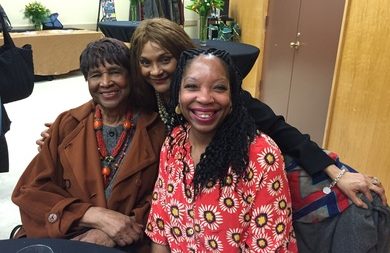
On page 22 of Impact of New Technologies and Globalization on Literature Publishing and Distribution in the African Diaspora, Meriwether said, “As writers who care about the deplorable state of the world… we need to be aware of all of the ramifications of globalization so that we can be the truth-sayers, taking the message to the people”
Through the decades, Louise Meriwether has remained true to her personal mission of Black writing as a means of organizing and protesting. She remains an inspiration to writers and activists alike and her life is a blueprint for how artists can produce art with purpose.
Works Cited
Meriwether, Louise. “Remembrances from the Civil War.” Black Renaissance/Renaissance Noire, vol. 3, no. 3, 2001, pp. 181-184.
Meriwether Louise. “Impact of New Technologies and Globalization on Literature Publishing and Distribution in the African Diaspora.” Black Scholar, vol. 38, no. 2-3, 2008, pp. 21-23.
Greene, Brenda M. “Louise Meriwether: A Life of Writing and Activism.”
Cornillon Koppleman, Susan. The Other Woman: Stories of Two Women and a Man. Feminist Press, 1984.
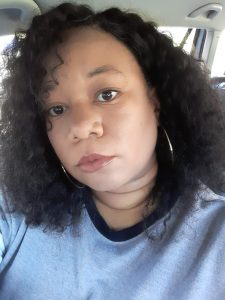 Ashley Simmons is a PhD student in literature. Her primary interests are speculative fiction, African American literature of the 20th century and transgressive fiction. In addition to her studies, Ashley has a background in media education and civic engagement. After graduation, she will pursue a non-academic track that combines her interests in literature with media production and civic engagement.
Ashley Simmons is a PhD student in literature. Her primary interests are speculative fiction, African American literature of the 20th century and transgressive fiction. In addition to her studies, Ashley has a background in media education and civic engagement. After graduation, she will pursue a non-academic track that combines her interests in literature with media production and civic engagement.
“Lest We Forget”: The Centennial of the Tulsa Riots May 31, 1921 – May 31, 202
THE PROJECT ON THE HISTORY OF BLACK WRITING
University of Kansas | Wescoe Hall 3114
785-864-2561